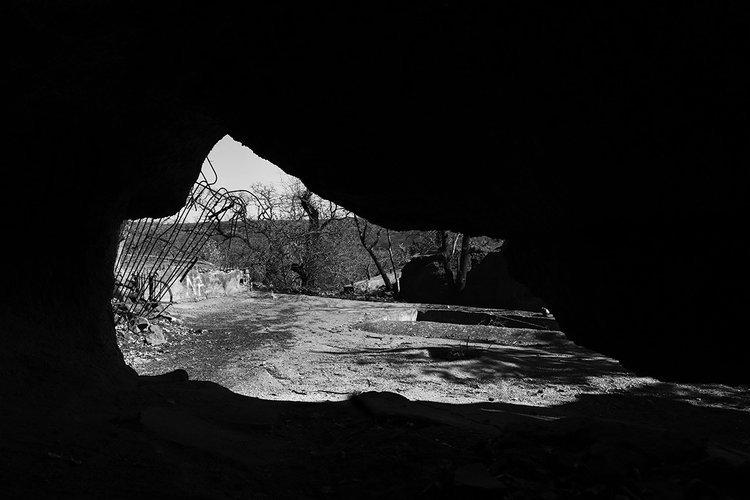“You look like a nice boy, I bet you have a lot of friends.” – Pennywise (Bill Skarsgård)
Andrés Muschietti’s take on Stephen King’s fanatically followed It has no problem setting itself apart from the cash grabbing, infamous pile of crappy movie reboots most want to forget existed. As a wisely crafted film led by witty characters and long-lasting moments of terror, It surpasses expectations from King fans and horror fans from all ends of the spectrum.
In the first ten minutes, It proves itself to be a psychological monster of emotions, sounds, and dissected horror movie cliques. This film had one promise: Screw typicality — and it is fulfilled with such a creative audacity that answers the prayers of those poor souls experiencing “reboot fatigue.”
It follows a group of bullied adolescents in Derry, Maine, who band together over the course of one horrifying summer when an ancient, shapeshifting evil — the fear-sniffing, sadistic clown known as Pennywise— as he begins hunting (and eating) the town’s children… But first, they must overcome their own personal fears, horrors Pennywise has no trouble exploiting.
What this 2017 reboot got right? The script — the byproduct of excellent storytelling techniques, authentic characters, and cleverly constructed tension. Writers Chase Palmer, Cary Fukunaga and Gary Dauberman wholeheartedly respected King’s raw style of horror and characters frightfully similar to our own reality. There was never a moment of boredom, never a moment of stagnation between the characters and the terrifying situations happening around them.
While most people assume the film to be a horror story, It was surprisingly — in a good way —a character driven story about characters that (because of the great writing) carried interesting personalities and quirks that pushed the story in humorously entertaining ways. Despite the film’s attempt at centering Bill Denbrough (played by Jaeden Lieberher) as the main character—because of the loss of his younger brother Georgie (Jackson Robert Scott) — Beverly Marsh (Sophia Lillis), Richie Tozier (Finn Wolfhard) and Eddie Kaspbrak (Jack Dylan Grazer) stole the show every time they were on screen. Beverly’s strong sense of self and tenacity to flip off the embodiment of fear itself standing before her made her a character all the more likeable and deserving to be cared for by the audience. Richie’s tendency to swear like no tomorrow as a personal coping mechanism made him the center of most of the film’s comedic moments. His intelligence shines just as much as his dirty mouth, which made him my personal favorite – Eddie’s fast-talk about the horrors of dirty surfaces a close second.
This does not mean that the emotional subplot between Bill and Georgie lacks interest. In fact, Bill’s determination to discover the truth of what happened to his little brother deserves nothing but the utmost respect. Because the circumstance is fictional, many movie-goers might write off Bill’s stubbornness against assuming the worst to be irritating. However, looking at it from a real world standpoint, most people would carry the same level of conviction to finding their loved ones.
Coming together, the Losers are a bunch of strange, yet funny and courageous kids who effortlessly carried this psychologically demanding coming-of-age tale to the very end with more wit and charm than most. Their fears. Their motivation. Their strength. I felt it all, and the top-notch talent from the young actors is profoundly responsible for breathing life into a tale about real children trying to survive life’s hardships…and a malicious, demonic clown. The Losers were well-introduced, well-liked, and well-executed through and through.
Pennywise is an unforgettable terror, haunting the town of Derry with the power of a Boggart, the lust of an apex predator, and the unhinged charisma of a demonic clown ready to feast on your flesh the second you secrete the right amount of fear. As he terrorizes his way through the film — in more ways than expected — this eye-rolling, limb-twisting piece of work leaves an everlasting impression on the brave movie-goers who thought this film would be nothing more than a cash grab. Skarsgård is magnificent as Pennywise, embodying a creature of psychologically scarring proportions. From the unsettling tone of voice to lack of humane reactions — ignoring the water dripping from his mouth in the sewers — Skarsgård’s engrossing performance made me constantly forget that a man is actual underneath all of that evil (and makeup).
Another aspect of the film to gripe about centers on a specific scene wrapped in 15 minutes of nail-biting tension. While I respect the film’s impressive plot twists, the direction the film took with one character at that specific moment felt anticlimactic rather than charming. Investing the audience in a well-invested scene and ending it with a fantastical flair was jarring tone wise, and it ultimately downgraded a sequence that was once brimming with nerves.
While I applaud this film’s commitment to creating layered, relatable main characters in respect to King’s original work, another aspect of the film that must be recognized is its impressive scare sequences. Instead of looking for an easy way to scare the audience, Muschietti works in “earned scares,” manipulating silence, sound, and feint scares to effectively build the tension that horror fans adore. We want to be scared…but not the cheap way. It understands its audience and blesses them with fright galore and unpredictability that leaves everyone truly unhinged until the very delightful end.
The film’s endless labyrinth of unpredictability is responsible for its shining moments in screwing with audience expectations of horror tropes. The awesome acting only enhances the intriguing character dynamics, engrossing dialogue, and satisfying direction of narration. Understanding that fear is the best spice, the film tosses conventional storytelling out the window and plays with the characters’ psychological status quo, all the while shoving a feeling of paranoia down our throats. Long-lasting scenes of hallucinatory, nightmarish imagery were not just for show — they helped construct a reality in which to both the audience and the characters there’s no escape. While the Losers did make stupid, hair-pulling decisions from time to time, the film’s overall great script and characters definitely overshadows its shifts in excellence. There’s no debate. 2017’s It is one of the best Stephen King adaptations and deserves praise for its bold storytelling. Float your way to the next screening and you won’t be disappointed.





